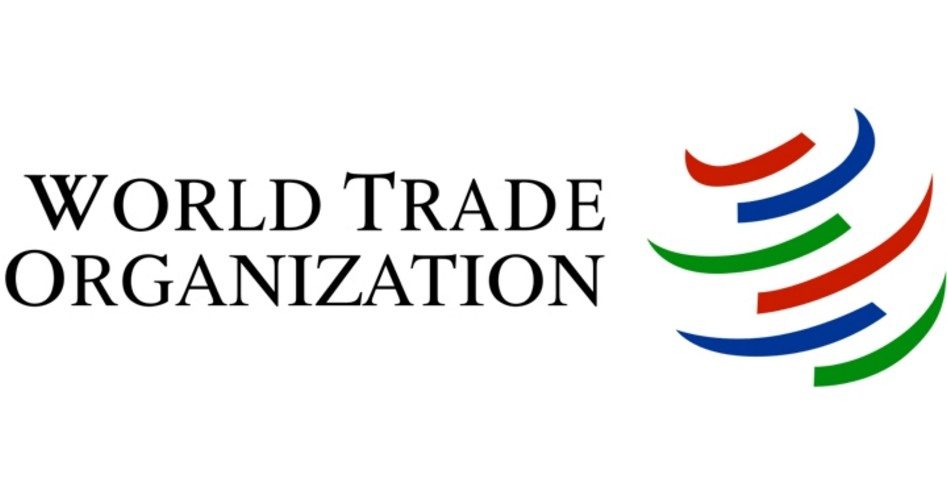
President Donald Trump’s highly charged rhetoric on trade, in which he accuses America’s “trading partners” of taking advantage of the United States, may be having some success. On Tuesday, World Trade Organization (WTO) Deputy Director-General Alan Wolff, citing a proposal by the European Union (EU), said there could be movement toward compromise over U.S. complaints.
The EU proposal discusses a wide range of issues in its 18 pages, but the most critical issue is its response to concerns the United States has with the Appellate Body of the WTO. The Trump administration’s action in blocking new appointments to the Appellate Body has the potential to kill it. The Appellate Body is the highest-level judicial body of the WTO, the heart of the global trade management organization.
The United States had charged that members of the Appellate Body were making legal interpretations outside the scope of the cases being heard. (Thus increasing the power of the Appellate Body and the WTO, in general).
Wolff urged calm: “My view is it’s possible to come to a reasoned solution. To do that, the U.S. really has to understand what’s in the mind of the EU and others who value the current system as it stands. And the EU and others have to understand what it is that is of concern to the United States. Otherwise there will be no Appellate Body.”
Wolff, an American citizen, expressed relief that American trade diplomats are still engaged in WTO business: “The U.S. is actively engaged in a whole panoply of areas. There is no evidence whatsoever of disengagement and it’s something I tend to watch being an American.” Wolff offered as examples U.S. is engagement in talks involving agriculture, e-commerce, services, new member countries in the WTO, and domestic regulation.
That last example, domestic regulation, is why many Americans have concern over the eventual goals of the powers behind the WTO. Domestic regulation means turning over control of America’s own economy to regulation by the WTO. As The New American noted in the September 2, 2013 issue of our print magazine, “The free trade agenda is not about creating genuine free trade (which would mean almost no government involvement), and it is not confined to the issue of trade; it is instead about transferring economic and political power to regional arrangements as stepping-stones to global governance under the guise of free trade.”
The Trump administration is correct in its concern about the expansion of governance by the WTO via its Appellate Body. We can observe how the judicial branch of our own federal government has used court decisions to enlarge the scope, size, and power of the federal government at the expense of the states. As bad as that is, Americans should have even more concern about such shenanigans at the international level, with the WTO.
And Americans were warned that joining the WTO in 1994 would involve a transfer of national sovereignty, by one of its supporters, Representative Newt Gingrich (R-Ga.). Gingrich told the House Ways and Means Committee, “I am just saying that we need to be honest about the fact that we are transferring from the United States at a practical level significant authority to a new organization. This is a transformational moment.”
Indeed it was, as Gingrich explained: “This is very close to Maastricht [the European Union treaty by which the EU member nations surrendered considerable sovereignty], and twenty years from now we will look back on this as a very important defining moment. This is not just another trade agreement.” (Emphasis added.)
Gingrich concluded, “I think we have to be very careful, because it is a very big transfer of power.”
An example from our own American history should demonstrate the accuracy of Gingrich’s assertion. Convened at the suggestion of James Madison, the Annapolis Convention was a political convention held September 11-14, 1786, at Mann’s Tavern in Annapolis, Maryland. Twelve delegates from five states gathered to reverse the protectionist trade barriers that each state had erected against others. At the time, the United States was governed by the Articles of Confederation, and each state essentially regulated its own economy as it saw fit. The national government had no authority to regulate trade between and among the states.
The convention led to a call for a general convention of all the states for the “sole and express purpose of revising the Articles of Confederation.” As students of U.S. history are well aware, however, this convention created a new Constitution for the country. While that Constitution was a remarkable document, it has failed to restrain the growth of the common government it created far beyond what was originally intended.
Today, while the states are still quite important in our federal system, their sovereignty has been reduced dramatically, and the power of the general government in Washington has grown dramatically. Calls for increased trade among nations, with whatever benefits derive from that, need to be assessed in light of our own national experience. As the British found out, “trade agreements” have a way of morphing into heavy-handed centralized governments.
While it is commendable that the Trump administration is attempting to mitigate the control of the WTO over our country, as long as the WTO exists, and the United States remains a member of it, the threat to our continued status as a sovereign nation is very real. When Gingrich remarked that the decision to join the WTO was a “very big transfer of power,” the transfer was from the United States to the WTO, not the other way around.




